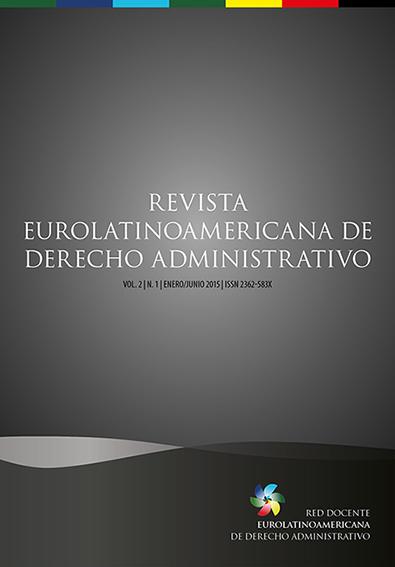The renewed administrative law in light of conventionality control
DOI:
https://doi.org/10.14409/rr.v2i1.4639Keywords:
Derecho Administrativo, control de convencionalidad, derechos humanos, Corte Interamericana de Derechos Humanos, tratados internacionalesAbstract
The new principles of public law, that that complete and enrich the ones set in the historical Argentine Constitution (1853/1860) and that were increased and re-sized radically after the year 1994 (year of the reform of the Federal Constitution), assert new legal limits to the activity of state organs, including the Public Administration. They have a significant influence in the field of Administrative Law, in light of relevant decisions of the Inter-American Court of Human Rights and the National Supreme Court of Justice of Argentina. These new paradigms no longer support the classical views on the Administrative Law. The new insights that the Inter-American Court of Human Rights (even following criteria of the European Court of Human Rights) provides to fundamental topics of this discipline currently produces - and will continue in the future - profound changes in this area of law, binding on all organs of the State including the administrative ones. The paper begins with an overview of the evolution of conventionality control and then analyzes the effects and scope of such control; the variety of legal sources that correspond to the conventional framework of human rights; the legitimate restrictions on human rights and their limits; and finally some necessary changes that must occur in some aspects of the administrative organization and its manifestations.
Downloads
Published
How to Cite
Issue
Section
License
Authors who publish in this Journal agree to the following terms:
- Authors retain copyright and grant the Journal of Constitutional Research the right of first publication with the article simultaneously licensed under the Creative Commons - Attribution 4.0 International which allows sharing the work with recognition of the authors and its initial publication in this Journal.
- Authors are able to take on additional contracts separately, for non-exclusive distribution of the version of the paper published in this Journal (eg.: publishing in institutional repository or as a book), with a recognition of its initial publication in this Journal.
- Authors are allowed and encouraged to publish their work online (eg.: in institutional repositories or on their personal website) at any point before or during the submission process, as it can lead to productive exchanges, as well as increase the impact and the citation of the published work (see the Effect of Open Access).



























.png)





